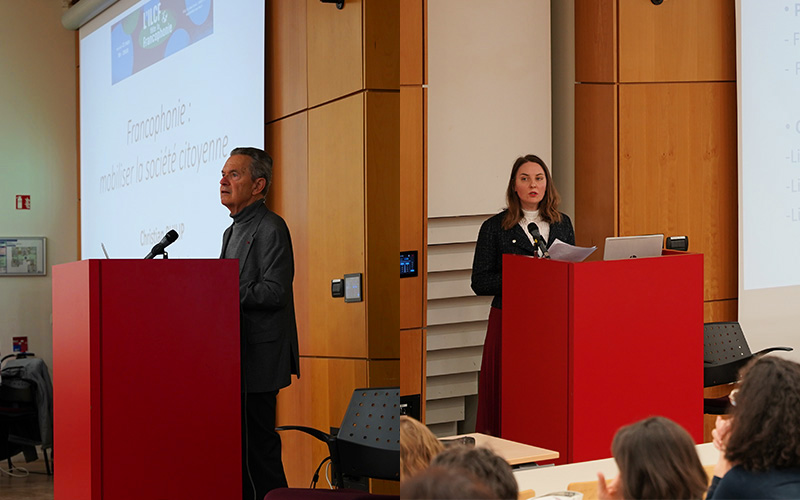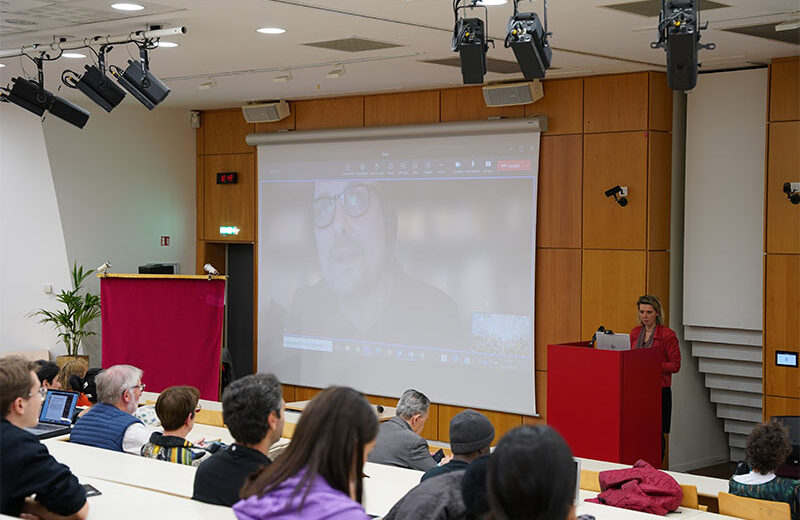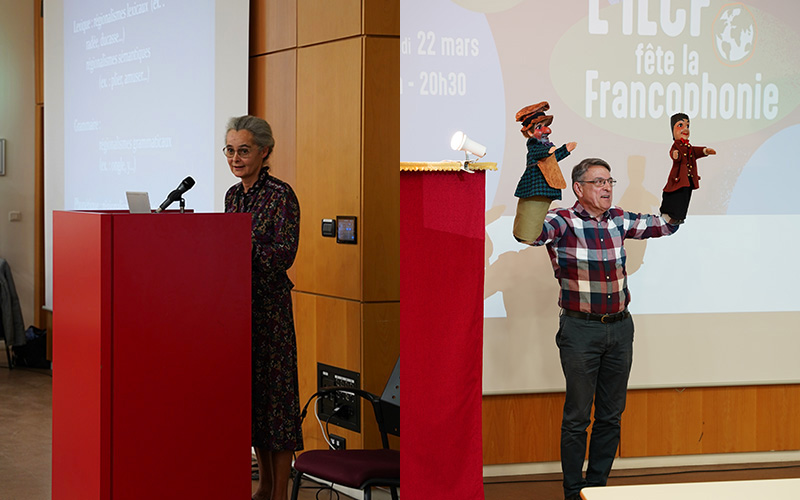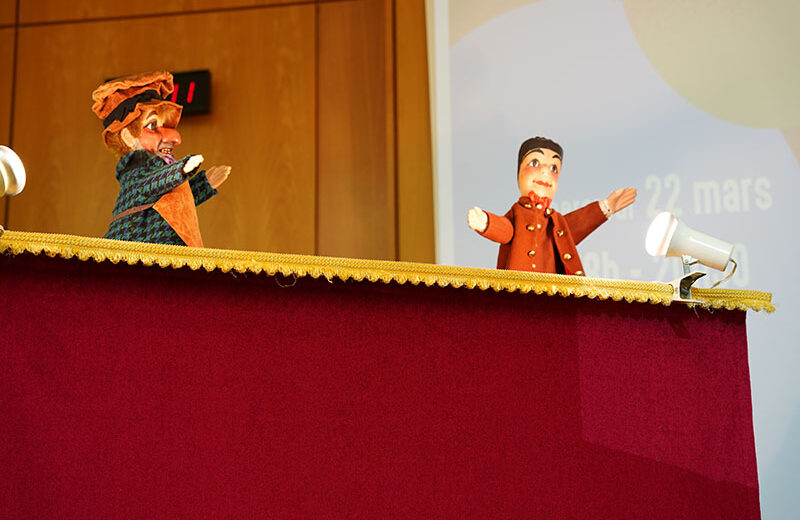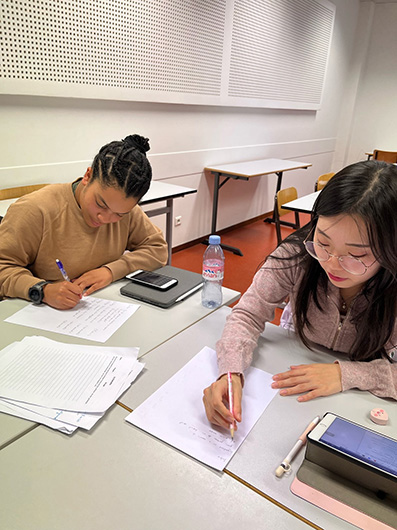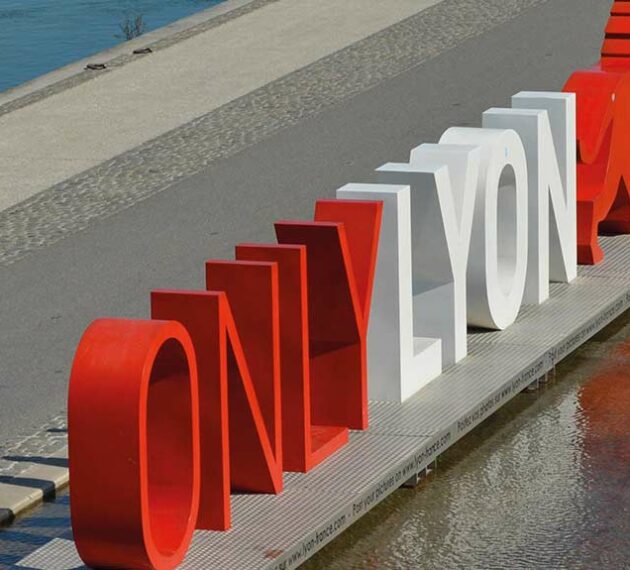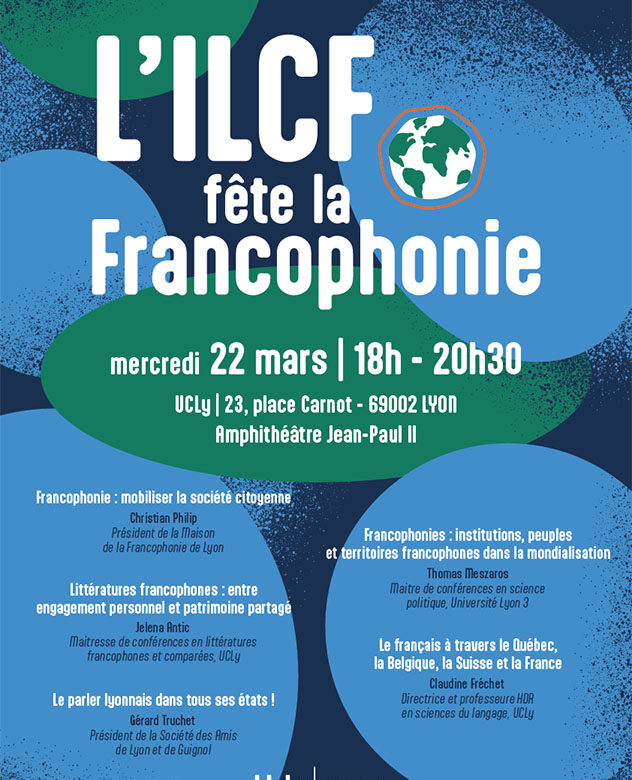
The ILCF celebrates « Francophonie », the French-speaking world
updated on 24 April 2023
ILCF - Institut de Langue et de Culture Françaises
The French Language and Francophonie Week was held from 18th to 26th March 2023. As part of this cultural event, the ILCF organised on Wednesday 22nd March the Francophonie festival, an evening around this theme, which is part of the Institute's DNA.
This is an opportunity for our learners from all over the world to discover more about the specificities of French wherever it is spoken, as well as to understand how language reflects culture (and vice versa!).
Teachers, students and visitors were gathered in the Jean-Paul II amphitheatre, the stronghold of Carnot campus. The Rector, Prof. Olivier Artus, opened the event. That evening, we received 5 specialist guests:
- Mr Christian Philip, Co-president of the Réseau international des Maisons des Francophonies and president of the Maison des Francophonies de Lyon;
- Mr Thomas Meszaros, Lecturer in political science at Lyon 3 University;
- Ms Jelena Antic, Lecturer in French literature at UCLy;
- Ms Claudine Fréchet, Professor of Language Sciences at UCLy;
- And lastly, Mr Gérard Truchet, President of the Society of Friends of Lyon and Guignol.
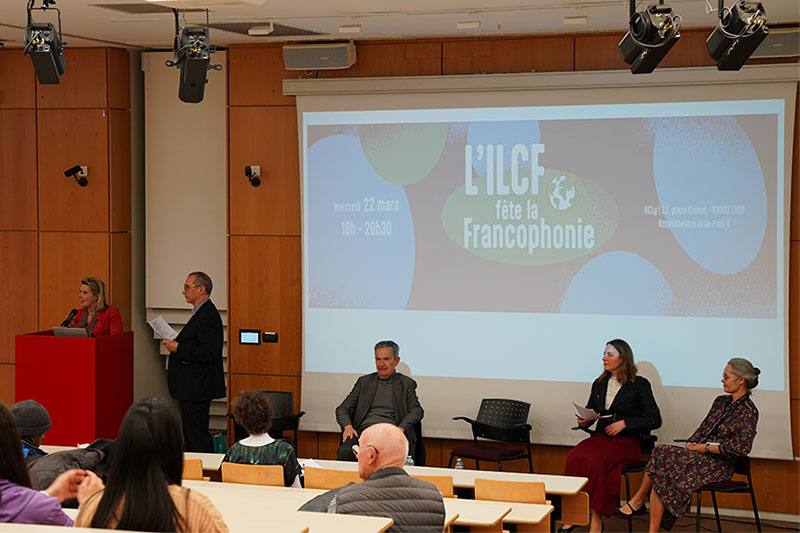
The Francophonie, at the heart of the programme for the second semester of 2023
The second semester at the ILCF is driven by a global project focused on French language. Indeed, March 20th is the International French Day. The scope of this event is worldwide. It is an opportunity for all concerned institutions to celebrate French and the French-speaking world.
Thus, the ILCF, being an institute for the teaching and learning of French as a foreign language, has been involved for several years in promoting this news.
The study project is carried out in 3 parts during the semester.
Presenting and discovering the Francophonie
First, the teachers introduced the concept to their new students. They presented the scope of the Francophonie, the countries that share the language and their geopolitical relations. The important thing to remember is that France does not have a separate place, it is part of a whole. For some, French is their mother tongue, for others, it is a second, academic or foreign language. In addition, the learners studied the French-speaking world in its many fields: linguistic, literary, political, geographical, historical...
Projects aligned with the Ministry of Culture programme
Then, for the week of March 20th, all our classes participated in the French governmental operation Dis-moi dix mots. Each year, the Caravane des dix mots team selects ten words used in French-speaking countries. From these original expressions, each group created various productions, such as acrostics, poems, stories... As for the management team, it was busy with the final preparations for a federative event, the Francophonie festival. This festival, although organised by the ILCF, was open to all. Beyond deepening the work of the students, it witnessed ILCF expertise within the UCLy.
Enriching one's linguistic culture
Lastly, a final work will be done in class around the topic of Francophonie at the end of the semester. Fabio Armand, lecturer at the Pierre Gardette Institute, has created thematic workshops for each level group. The aim is to discover the variety of the language by studying certain parts of the lexicon. This is as wide-ranging as toponymy, i.e. the names of places, or the naming of animal calls, which differs according to the French-speaking regions.
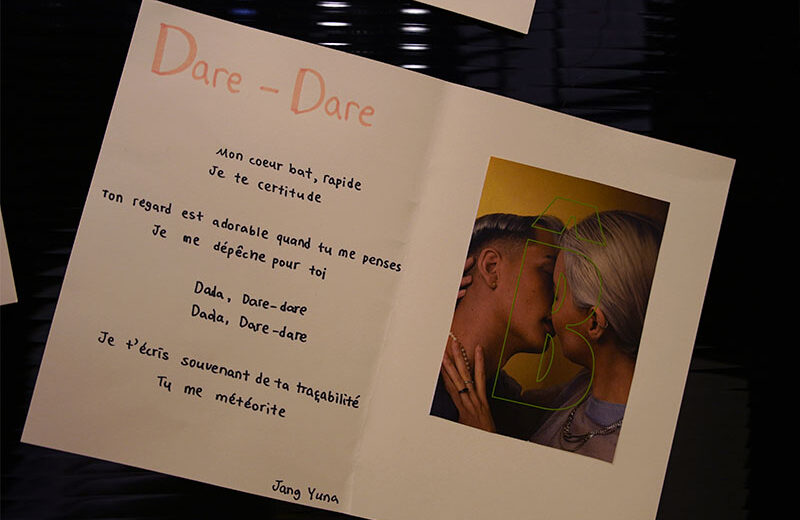
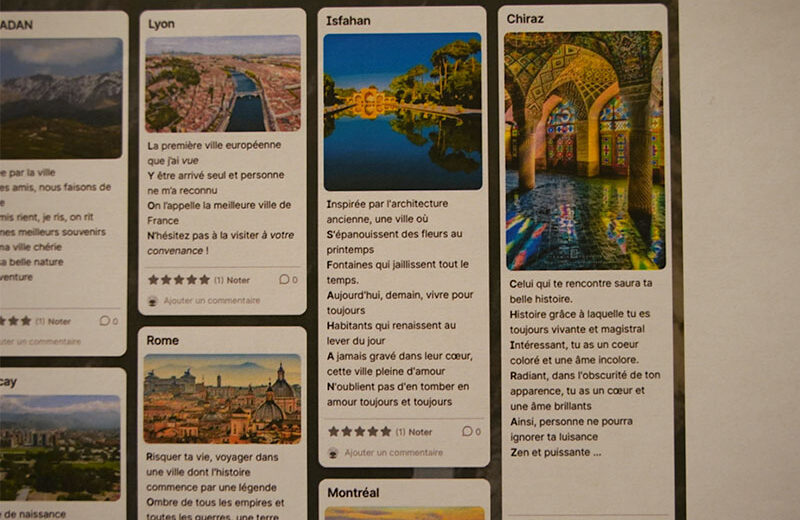
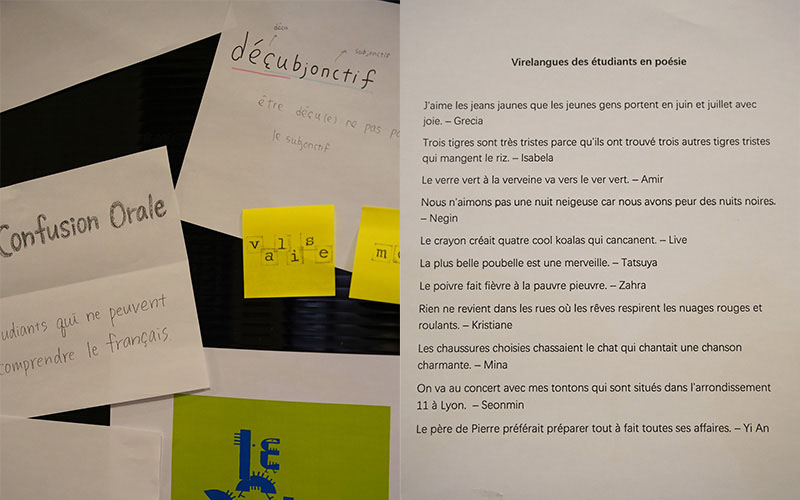
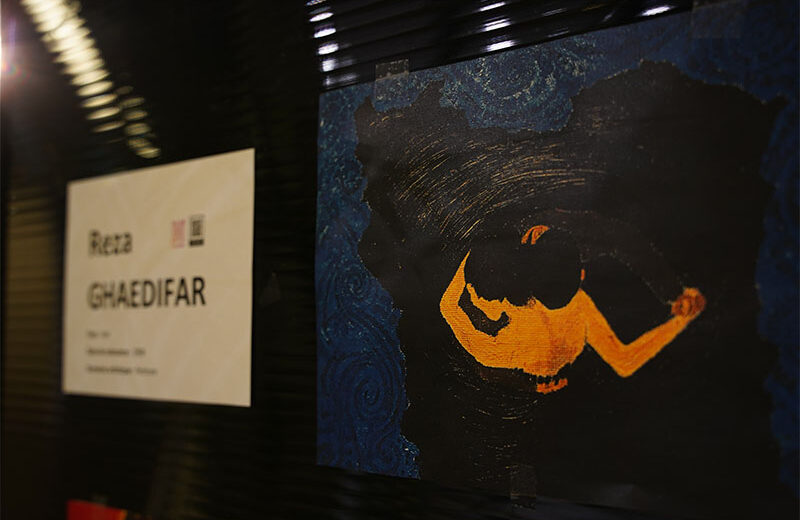
A panorama of aspects discovered that evening
The point of having followed this evening programme is that you come away with an open mind. We were able to see the underlying diversity of this concept.
"Too often, when we talk about the French-speaking world, we talk about the language and French literature. It's very interesting, but Francophonie is not just about language," says Valérie Soubre.
The diversity of the French-speaking world
The Francophonie was a project: Léopold Sédar Senghor, former president of Senegal and founding father of the Francophonie, wanted to make good use of the language that many countries shared after the colonial period. For this language was no longer the French of France.
Therefore, language is only the tip of the iceberg. Other aspects define the Francophonie: geopolitical, geostrategic, geo-economic. For example, this common language has its own trade circuit.
In this way, Jelena Antic and Claudine Fréchet respectively presented a panorama of Francophone literature, and the variety in the Francophone space, at the level of pop culture, or of linguistic expressions in Belgium, Switzerland and Quebec in particular. Then, by broadening the context, Christian Philip presented the concept of Francophonie of the populations (which differs from the authorities, it is the Francophonie of the people).
The importance of our language in the world
Francophonie is still a very current notion, at the heart of strategic issues.
In political science, Thomas Meszaros gave us an opening on other axes of development. He spoke to us about three Francophonies: linguistic, geographical and institutional. What connects them is a feeling of belonging, which involves the existence of a community and collective responsibilities. By following the news of the Francophonie, we become aware of its modern evolution. Today, it is a counterweight to the Commonwealth, because of its similar position in the world economy.
The different local languages of the French people
Finally, the segmentation of the French is done at different scales, and therefore in the heart of our country as well. The discovery of local languages teaches us even more. The evening ended in the language of Lyon, with the show of Guignol, accompanied by his friend Gnafron. Gérard Truchet brought us the necessary touch of lightness to close the event in beauty.
